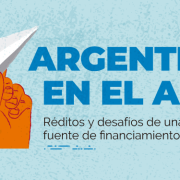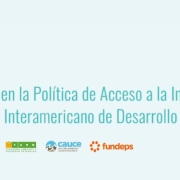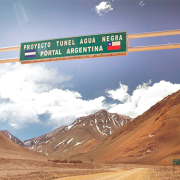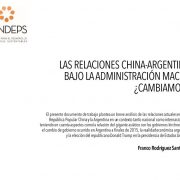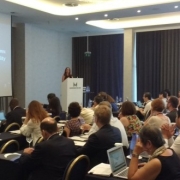The United States candidate, Mauricio Claver-Carone, was elected as the new president of the IDB
Through a virtual meeting, the Board of Governors of the IDB elected the North American candidate, Mauricio Claver-Carone, as president of the Bank.
“Below, we offer a google translate version of the original article in Spanish. This translation may not be accurate but serves as a general presentation of the article. For more accurate information, please switch to the Spanish version of the website. In addition, feel free to directly contact in English the person mentioned at the bottom of this article with regards to this topic”.
On September 12, the members of the IDB Board of Governors met virtually to elect Mauricio Claver-Carone as the new president of the Bank for the next 5 years. Despite the fact that at the beginning of the election process several candidates presented themselves, the pressure exerted by the United States led the candidate Laura Chinchilla from Costa Rica to step down and later, one day before the elections, the Argentine candidate did, Gustavo Béliz. The strategy of not giving a quorum in the election planned by some of the countries in the region opposed to the North American candidate and the break with the historical tradition in the presidency of the IDB also failed.
Claver-Carone will replace Luis Alberto Moreno on October 1 of this year and will be the fifth president of the Bank. In addition, he will be responsible for the operations of the IDB Group, that is, the IDB, IDB Invest and IDB Lab. The president-elect serves as Deputy Assistant to the President of the United States and Senior Director of Western Hemisphere Affairs in the Security Council of The US was also the US Representative to the IMF and Senior Advisor to the Under Secretary for International Affairs in the US Department of the Treasury.
For a candidate to be elected president of the IDB, they must receive the majority of the total votes of the countries that are members of the IDB (48 member countries in total) and the support of at least 15 of the regional member countries (with Canada and USA the total of regional member countries is 28). In this case, Claver-Carone won with 67% of the shareholders in total and with the support of 23 of the 28 members of the region. The president is elected by the Board of Governors, the highest authority of the IDB. Each member country of the Bank has a Governor whose voting power is proportional to the capital that his country has in the IDB. Governors are generally the finance ministers, central bank presidents, or other public officials of member countries.
From civil society organizations, last month we issued a statement to the Bank’s Governors where we expressed our concern about the presidential elections of the Institution, the rejection of the nomination of the North American candidate and the lack of opening of the election process since the participation of social organizations and communities was considered. In the statement, we also highlighted the conditions that the new president should have, such as:
- Strong commitment to multilateralism.
- Extensive experience and knowledge of the context of Latin American and Caribbean countries.
- Clear commitment to transparency, accountability and the participation of all communities and civil society in the Bank’s actions.
- Knowledge and experience in development agendas that show a commitment to the public interest, the protection and promotion of human rights, gender equality, the need to quickly face the effects of climate change and implement a sustainable development model focused on indigenous peoples and communities.
What remains to be known is whether the president-elect, Mauricio Claver-Carone, meets all the aforementioned conditions and whether he will be able to distinguish himself from the presidency of Luis Alberto Moreno, marked by the lack of dialogue with civil society and affected communities. Will Claver-Carone be capable of opening spaces for dialogue with civil society and communities as well as responding adequately to the demands of Latin American and Caribbean countries in the context of the economic, social and climate crisis they are experiencing?
More information
- Mauricio Claver-Carone, President-elect of the IDB – IDB
- Regional statement regarding the IDB presidential elections – Fundeps
- The end of a historical tradition in the presidency of the IDB? – Fundeps
Author
Sofia Brocanelli
Contact
Gonzalo Roza, gon.roza@fundeps.org

